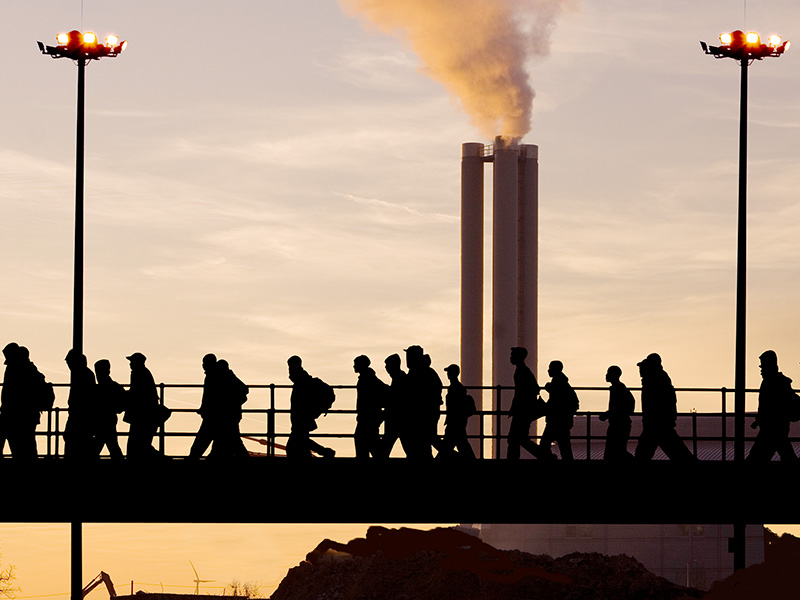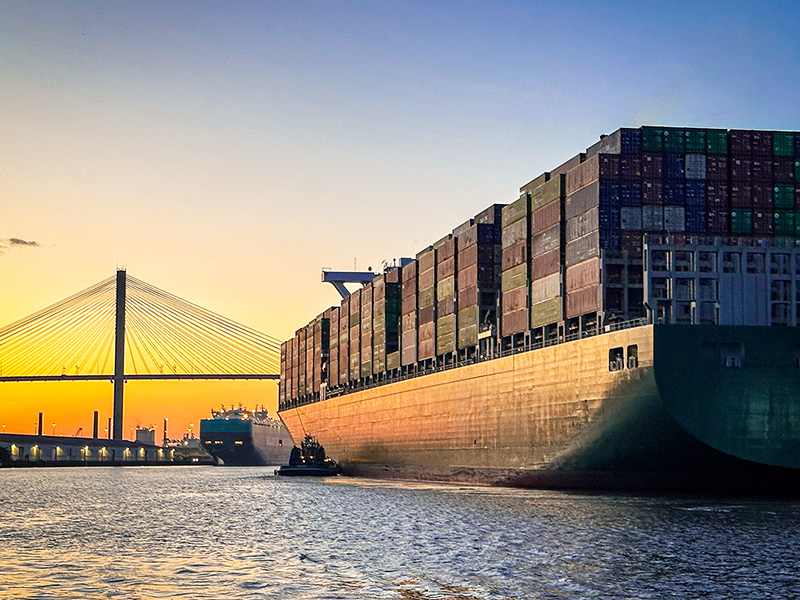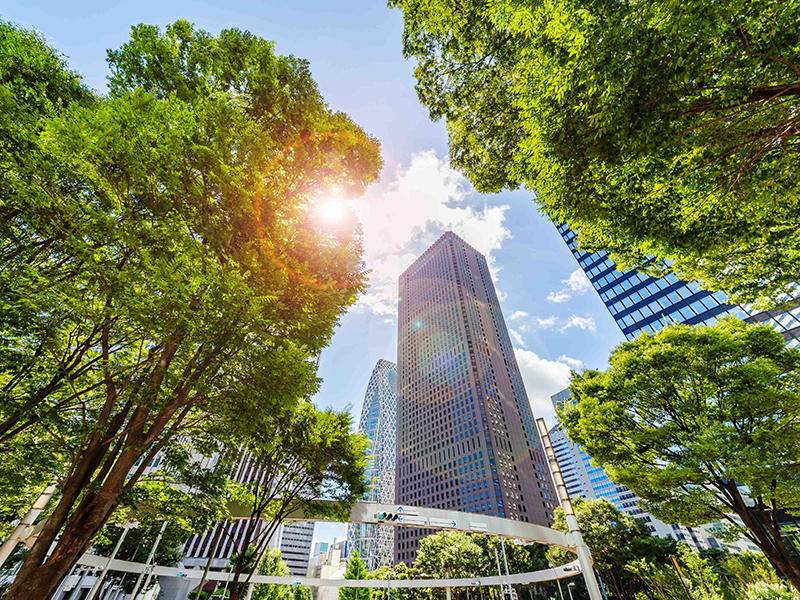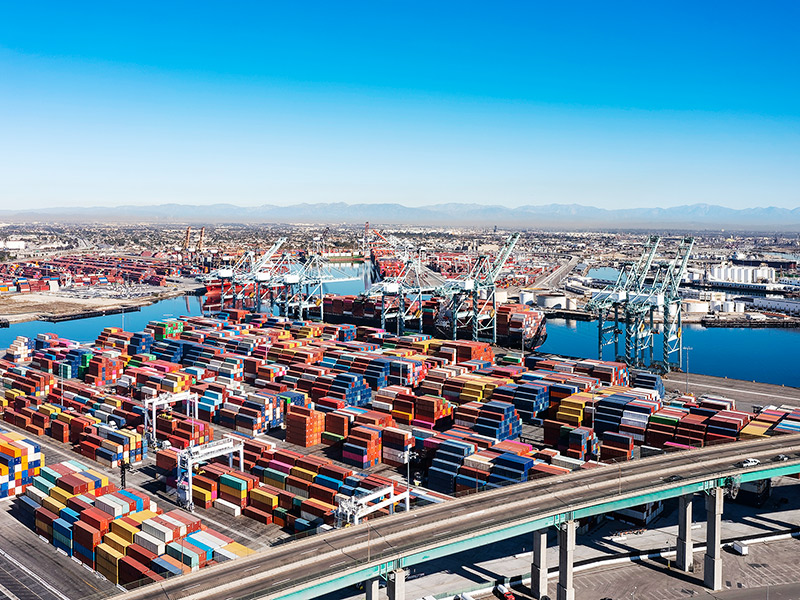
Photo by Valery Boyarsky on iStock
As we begin 2025, and the second half of the 2020s, their promise of being a “decisive” decade for achieving crucial goals has—so far—fallen short.
Instead, we find ourselves facing more questions than answers. How we respond to them, and their second and third-order effects, may not be decisive, but they will be defining.
The momentum for sustainable business that was so evident in 2020 has stalled. There are many reasons for this: economic volatility, technological change, political instability and backlash, prioritization of regulatory compliance over action, and a fractured information ecosystem prone to mis- and disinformation.
Underlying all this, many in society have lost faith that they will benefit from a more sustainable economy. They not only see little in the way of economic benefit, but also view many of the messengers of a just and sustainable world as talking down to them and ignoring their realities. As the Chief Sustainability Officer (CSO) of one of our member companies put it to us in December: “When middle-class families are struggling to keep up, our ideas sound like empty slogans.” We have to overcome this cynicism amongst many outside the sustainable business community and take renewed action that achieves tangible results.
Here are ten questions that are likely to define progress in 2025:
How will businesses respond to ongoing attacks on sustainable business?
Many businesses have trimmed their sails in the face of online activists and political figures challenging the very legitimacy of sustainable business. There are important debates over how to take action on climate and diversity. But the current effort to delegitimize the very concept of sustainable business, despite considerable evidence that it is essential to resilient and innovative business, and highly valuable for social and economic progress, is undermining important progress. Careful communication is one thing; failing to respond to misplaced and inaccurate attacks is another. With diversity and climate efforts under particular attack, and misrepresentations and misinformation about sustainability generally running rampant, when will business leaders decide that it is time to call out the inaccurate and damaging arguments that are based more on ideology than objective reality?
Do businesses have a “red line” when it comes to rule of law?
2024 was a record-breaking year of elections. This year, businesses face an environment in which the rule of law is being questioned and undermined by elected officials, other political influencers, and amplified on social media. Observers like Rachel Kleinfeld have argued that when these trends advance, economies overall and individual businesses face more challenging conditions. After a burst of comments and commitments on such matters several years back, most business leaders have retreated, choosing not to call out attacks on the rule of law and the rise of populism. Will this continue? Or is there a point when companies and individual business leaders conclude that they need to contest the decline of rule of law?
Will sustainability regulations in the EU be scaled back?
With a new European Commission and Parliament, political uncertainty in many European member states, and concerns that the regulatory frameworks governing various aspects of sustainable business are too onerous, expensive, and complex. There are growing signs that the regulatory requirements may be changed, with options ranging from consolidation, to delayed implementation, to withdrawal. Should changes come to pass, the question then becomes whether they are viewed as a pullback or U-turn from the Green Deal, or a refinement designed to make the rules more effective and efficient. Europe is likely to remain an engine of progress in formalizing sustainable business, but the pace and scale of that leadership is unclear as we enter the year.
Will companies pay a price for missing or reducing their targets?
Many companies are missing their targets, on important issues ranging from Scope 3 emissions to nature to diversity. As a result, many businesses are rethinking whether and how to set new goals looking out to 2030 or beyond. Regardless, the question remains: will companies face meaningful criticism from customers, employees, investors, stakeholders, or even litigants bringing legal challenges for these shortfalls? The ways that companies make sense of the simultaneous need both for pragmatism and ambition has huge consequences. It is not an option to choose only one of these two directions.
Will the focus on regulation prove transitory, giving way in 2025 to greater innovation and ambition?
This is a question of massive importance. Companies have spent untold hours, dollars, and euros preparing for new regulatory compliance regimes. The net result has been more effort dedicated to measuring performance than achieving progress. This is not a formula that will produce the innovation or positive outcomes that are urgently needed. With the 2026 implementation date for the CSRD looming, one big question is whether this is the last year of compliance readiness, and we return to our regularly scheduled programming, or whether regulatory readiness continues to predominate.
Will COP30 herald the demise of COPs as we have known them?
The climate, biodiversity, and desertification COPs in 2024 were widely seen as failing to deliver. What does this suggest about the viability of COPs as they are currently constructed and organized? Cristiana Figueres and Ban Ki-Moon took the lead in suggesting reforms to deliver more decisive and effective outcomes, only to be largely dismissed by the UN system. It is nonetheless clear that the inherent difficulty in achieving consensus amongst nearly 200 countries with highly diverging interests and power is preventing clear outcomes. Are the COPs destined to be considered in the same light as Churchill’s famous comment about democracy, “the worst form of government…except for all the others that have been tried?” COP30 in Brazil will be yet another stress test, not only for climate action, but also for the very COP model itself. And if the current version of COPs is not working well, what alternatives exist?
Is it better for COP30 to have the Trump-led US in or out?
In 2017, President-elect Donald Trump withdrew the United States from the Paris Agreement, ignoring calls from business, civil society, and many others to have the world’s largest economy and historic emitter remain. It is widely expected that he will do the same in 2025. This time around, there is a real question about whether the global effort to fight climate change would be better off with the US in or out. Should a Trump Administration remain in the Paris Agreement, the US might be a net negative, interfering with ambitious action at COP, and joining forces with other major oil and gas producing countries to water down, if not prevent, a meaningful agreement in Belem. Might it instead be better for the countries that are genuinely committed to progress on climate to move boldly ahead without the US?
Who will emerge as the new wave of sustainable business leaders, and how will they be different?
The last wave of sustainability ambition was characterized by high-profile CEOs, mostly from Western companies, who proclaimed new commitments and weighed in on many social issues. This was immensely valuable in catalyzing action and raising awareness. Today, the profile of leadership is changing. There are innovators coming from all corners of the world, not only the global north. There is a recognition that the voice of the rising generation that will be wrestling with the greatest impacts of climate change and technological innovations needs to be heard. The nature of leadership is also changing. While broad proclamations are important, delivering the goods is even more so. It is never easy to predict when and where leaders will emerge. But the next wave of leaders will be younger than the last, more globally representative, and more focused on delivery.
How will the role of the CSO evolve: will they be playing defense or offense, preserving gains, or pushing forward?
We closed 2024 with a look at how the role of the CSO is evolving, focusing on three archetypes: the steady manager, the integrated strategist, and the transformative change agent. Following the US elections in November, we added the “defender-in-chief,” a CSO who focuses on, well, sustaining progress to date as various forces push back on existing activities.
In 2025, it is likely that every CSO will have to play some defense. But it is equally true that any CSO who is unable to or prevented from painting a picture of transformative change will not be serving their company well. The world is experiencing transformative change, some of it directly related to sustainability, some of it indirectly related to sustainability. This presents both a massive opportunity to shape and leverage this change for positive sustainability outcomes. It also opens the door to link these changes to outcomes that benefit people and communities. And at a minimum, it demands attention to the many ways that companies can be resilient in the face of profound change.
Finally, and perhaps most importantly, how can we talk about sustainability in a way that will resonate with the general public, and demonstrate convincingly that these efforts will improve their lives and well-being?
It is increasingly clear that in the US and Europe many citizens, public officials, consumers, and others find the sustainability narratives that have been used over the past 30 years tired, uninspiring, and sometimes rather off-putting. Many in the public feel that an agenda is being forced on them that disregards their needs or interests, and is cooked up by elites they hold in low regard. Some of this is the fault of those of us in the world of sustainable business: we use too much jargon, providing opponents with a golden opportunity to mischaracterize—cynically—topics such as DEI and ESG to advance their own agendas. Addressing this, however, demands far more than simply seeking a “script doctor” for sustainability, or doubling down on arcane facts. The answer lies instead in a renewed effort to put people at the center of sustainable business. If we do not find ways to generate economic security and opportunity amidst massive technological, environmental, and social change, we can expect ongoing opposition to an agenda that will remain irrelevant at best, and dangerous at worst for many in the public. This will further stoke political blowback.
The year ahead will no doubt deliver questions we are not anticipating now. Over the last few years, we have experienced unexpected developments that seemed to flip the script for business and the wider world overnight. The pandemic was not predicted, and very few observers thought that sustainability would flourish once it hit, but that’s exactly what happened. With the new year only just underway, we have seen devastating wildfires turbocharged by climate change, more companies retreating from diversity efforts and content moderation, and renewed questions about the march of AI. These remind us of the urgency of our task.
At the same time, we also start the year with a good deal of focus on headwinds that have led to the so-called “sustainability recession.” These headwinds may obscure, though they do not erase, the underlying reasons why a more equitable economy that addresses planetary boundaries is so fundamental for innovative, thriving, and resilient companies, and to improve the lives and livelihoods of people and communities around the world.
Inevitably, there will be events that—for better or worse—provide a sharp reminder of that reality, and will catalyze a new sense of urgency. Will this happen in 2025, and if so, what and when?
BSR’s latest sustainability insights and events straight to your inbox.
Topics
Let’s talk about how BSR can help you to transform your business and achieve your sustainability goals.








